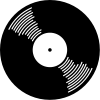Talk:Billboard Hot 100
| This is the talk page for discussing improvements to the Billboard Hot 100 article. This is not a forum for general discussion of the article's subject. |
Article policies
|
| Find sources: Google (books · news · scholar · free images · WP refs) · FENS · JSTOR · TWL |
| Archives: 1Auto-archiving period: 60 days |
| This article is rated C-class on Wikipedia's content assessment scale. It is of interest to the following WikiProjects: | ||||||||||||||||||||||||||||
| ||||||||||||||||||||||||||||
regarding R. Kelly/Celine Dion "I'm Your Angel"[edit]
Kelly/Dion's duet "I'm Your Angel" technically did not make a 46-1 move on the Billboard Hot 100.
The song became #1 on the first week Billboard allowed airplay-only songs to chart on the Hot 100. In Billboard's print edition that week, the "last week," "2 weeks ago" and "weeks on chart" columns reflected ranks from UNPUBLISHED TEST CHARTS Billboard had been using prior to making the new chart rules official. Because of this, it appeared that "I'm Your Angel" made a 46-1 move, when in fact the song debuted at #1, as the official Hot 100 chart of the week prior did NOT contain "I'm Your Angel" at all.
This song's statistics should be moved from the "Biggest Gain To #1" section to "#1 Debuts," perhaps with an asterisk explaining the situation and/or reasons why people may dispute this song's official debut position.
Previous charts to the Hot 100[edit]
The second paragraph of the article is vague and sounds like guessing. "Almost a half-dozen" is useless; a half-dozen is six and anything below that can be simply stated as a number. "Apparently all the charts became a little too difficult..." sounds like guessing. Unless a source backs this up, I'm going to change it so it's reflective of obvious facts. -- Mjwilco 18:28, 23 Jun 2005 (UTC)
Questions[edit]
Could someone please help with me the following two things.
1) What is the difference between "impressions" and "detections" in terms of airplay?
2) Is there anyway of accessing #1 singles for the different charts such as Hot 100 Airplay and Hot 100 Single Sales since their inception to the current time, or is that only available through back catalogue issues of Billboard magazine?
Ultimate Star Wars Freak 6 July 2005 22:13 (UTC)
- 1) I don't know
- 2) Joel Whitburn's book on the Hot 100 (2000 edition) includes the positions that a song attained on the airplay and sales charts.
- Acegikmo1 6 July 2005 22:38 (UTC)
- 1) I am not 100% sure about this, but those terms have to do with which radio stations are being monitored, what the rating is of the radio station (# of people who listen), and the time of day that the song is played (a song played on a popular Top 40 station at 4PM when young listeners are home from school on a weekday as opposed to the same station playing a song at 3AM on a Sunday morning). It is my guess that a detection is an actual, literal count of the number of times a song is played, and an impression is a calculation of how many potential listeners there are, based upon the factors I just described, plus other things.
- 2) Those Joel Whitburn books do have some Sales and Airplay information, but as they are collections of data specifically geared towards actual Hot 100 positions, it is not arranged in a way that would be easy to find out everything that has hit either just the sales or just the airplay chart. on top of that, those books to do not list the week-ending dates for sales-only or airplay-only chart peaks. The book may show that Song X hit #1 on the airplay chart, but there is no way of telling what issue date that occurred. You'd probably have to obtain (and pay for) that information from Billboard or Record Research (www.recordresearch.com).
- Hope that helps..... eo 7 July 2005 00:43 (UTC)
- Thanks for that. Ultimate Star Wars Freak 7 July 2005 09:30 (UTC)
Hey USWF, for #1, this is probably maybe not the most technically correct way to explain it, but als for impressions, it also depends what city you're in. Like 1 detection in New York and 1 detection in some city in the middle of nowhere will not be the same in terms of impressions. More weight would be given to the NY station because the NY stations would reach more people in terms from a stat point of view. Hope this helps. OmegaWikipedia 7 July 2005 21:04 (UTC)
Question[edit]
How is the hot 100 different to the pop 100?
Edit request; (April 10, 2014)[edit]
New 80's Songs[edit]
Sources[edit]
Semi-protected edit request on 18 June 2024[edit]
This edit request has been answered. Set the |answered= or |ans= parameter to no to reactivate your request. |
Add the following citation to the sentence of the "Remixes" subsection that reads "To address this issue, Billboard now separates airplay points from a song's original version and its remix, if the remix is determined to be a "new song"."
Mayfield, Geoff. "Remixes' popularity calls for revisions." Billboard. Vol. 113, Iss. 48, (Dec 1, 2001): 3. Pch9857 (talk) 19:23, 18 June 2024 (UTC)
 Not done for now: please establish a consensus for this alteration before using the
Not done for now: please establish a consensus for this alteration before using the {{Edit semi-protected}}template. - FlightTime (open channel) 19:23, 18 June 2024 (UTC)



